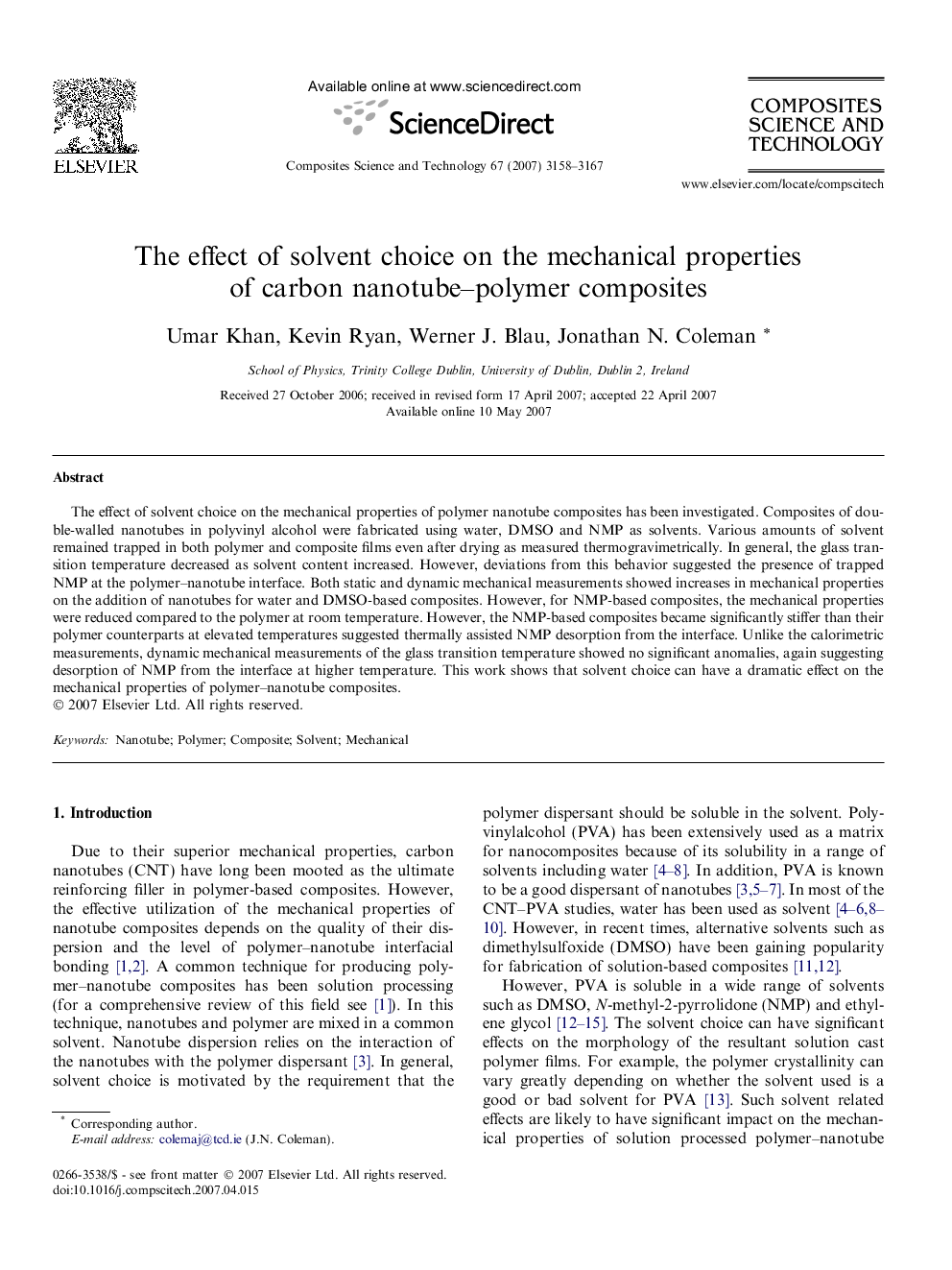| Article ID | Journal | Published Year | Pages | File Type |
|---|---|---|---|---|
| 821676 | Composites Science and Technology | 2007 | 10 Pages |
The effect of solvent choice on the mechanical properties of polymer nanotube composites has been investigated. Composites of double-walled nanotubes in polyvinyl alcohol were fabricated using water, DMSO and NMP as solvents. Various amounts of solvent remained trapped in both polymer and composite films even after drying as measured thermogravimetrically. In general, the glass transition temperature decreased as solvent content increased. However, deviations from this behavior suggested the presence of trapped NMP at the polymer–nanotube interface. Both static and dynamic mechanical measurements showed increases in mechanical properties on the addition of nanotubes for water and DMSO-based composites. However, for NMP-based composites, the mechanical properties were reduced compared to the polymer at room temperature. However, the NMP-based composites became significantly stiffer than their polymer counterparts at elevated temperatures suggested thermally assisted NMP desorption from the interface. Unlike the calorimetric measurements, dynamic mechanical measurements of the glass transition temperature showed no significant anomalies, again suggesting desorption of NMP from the interface at higher temperature. This work shows that solvent choice can have a dramatic effect on the mechanical properties of polymer–nanotube composites.
